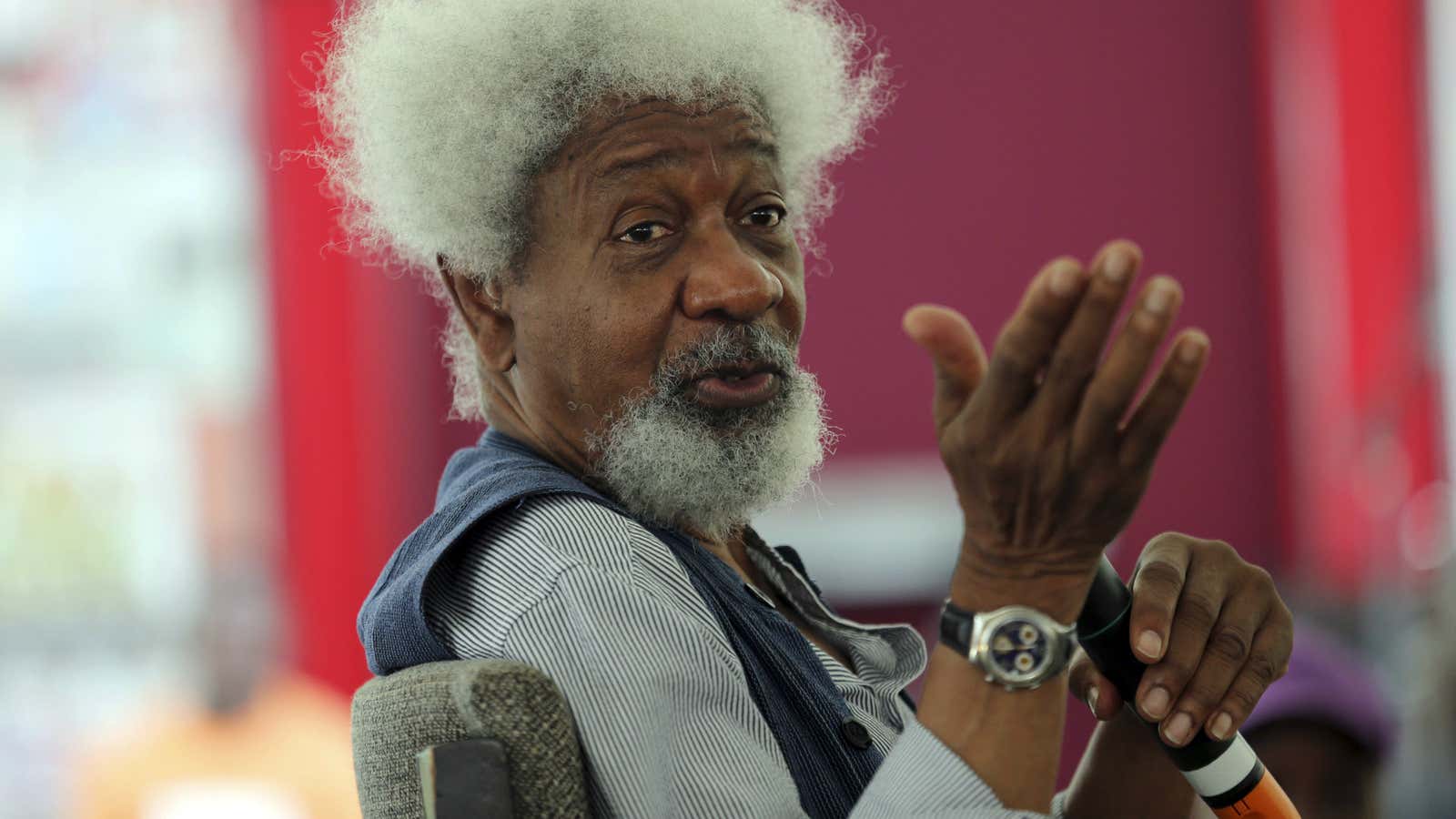Wole Soyinka, Africa’s first Nobel laureate in literature, has lent his voice to the debate on Bob Dylan’s Nobel prize win.
Soyinka, a recipient of the award in 1986, gave a tongue-in-cheek comment on Dylan’s win speaking at Oxford University’s Ertegun House. “Since I’ve written quite a number of songs for my plays, I would like to be nominated for a Grammy,” Soyinka said.
The Nigerian playwright, author, poet and political activist has written dozens of plays and written numerous books of fiction, memoirs and poetry. Often outspoken, he was put in solitary confinement by the Nigerian government during the 1960s Biafra war.
Soyinka’s comments allude to criticism over the decision to give Dylan the prize for songwriting. Since Dylan’s win, the debate has grown over whether the prize for literature ought to be reserved only for writers and authors. It has also been interpreted as confirmation of the growing disillusionment with books in general.
In a piece on Quartz, Abdi Latif Dahir makes the case for Ngũgĩ wa Thiong’o, the Kenyan writer who was a leading favorite for the award this year, according to betting sites. Thirteen years since an African last won the award, Latif says Ngũgĩ was a deserving winner.
If the Swedish Academy gives the award in the field of literature to “the most outstanding work in an ideal direction,” then Ngũgĩ is the man to beat. For his social and political criticism, for using truth as an organizing factor, and most of all, for applying African languages to tell stories with deep resonance, Ngũgĩ should have been awarded the prize this year.
But despite Ngũgĩ—and Africa’s—snub, Soyinka is positive about the future on literature on the continent. ”I think we of the older [generation] are getting a little bit tired, and I think our production gets thinner and thinner,” he says. “But fortunately, it doesn’t worry any of us, as far as I know, because the body of literature that is coming out [is] varied and liberated,” he said.
